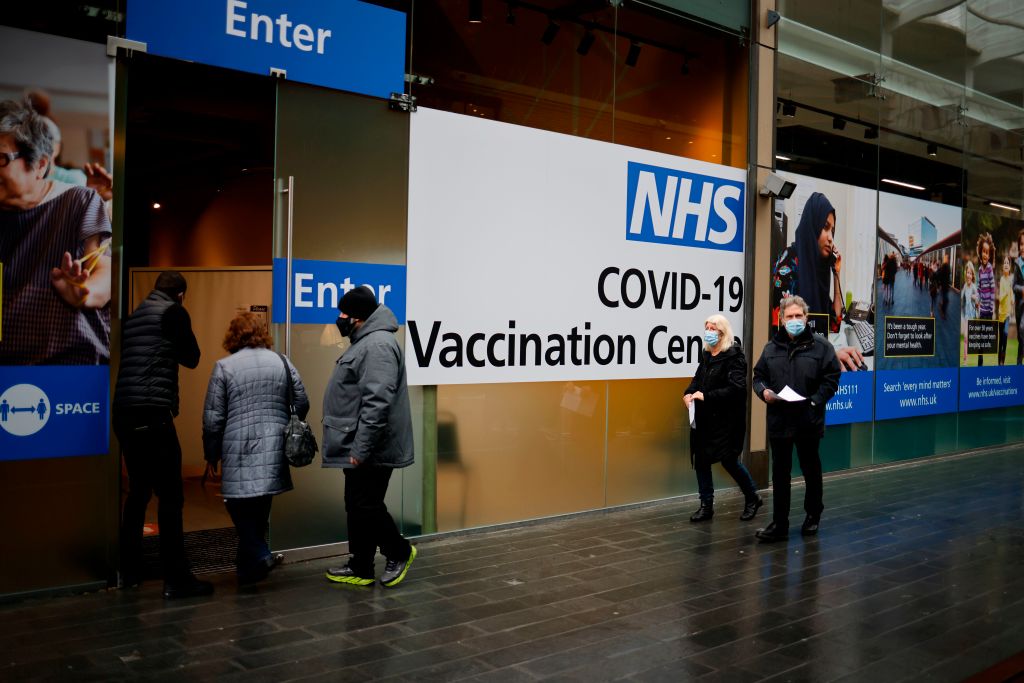A woman and her four children drank their own urine after false information was sent to her to prevent COVID-19.
The London mother told British health workers that she followed the misleading advice in videos she received via the messaging service WhatsApp.
She said she drank the urine for four days, which contains high concentrations of toxins, adding that she did not trust the coronavirus vaccine and preferred to rely on ‘traditional medicines’.

TOLGA AKMEN / AFP via Getty Images
Her case highlights fears among policymakers around the world about how false information could affect the uptake of COVID vaccines.
The unnamed woman, who spoke to researchers interviewing Londoners about the information and support they received after the first wave of the pandemic, said she believed Microsoft founder Bill Gates and his wife Melinda will start a vaccine and that these drugs are a danger to her and her family.
Gates has no such plans, and COVID-19 vaccines, which are administered to millions of people worldwide, have been shown to be safe and painless.
In the document drawn up for the City of Westminster council in central London, the researchers write about the “prevalence of alternative information shared via WhatsApp.”
They said: ‘This information often points to false, alternative treatments that have no scientific and empirical background.
For example, one person we spoke to told us that her friend or family member, who is her primary source of information on COVID-19, was passing on other people’s personal recommendations.
“Some of the videos she received discuss that you drink your own urine every morning as a cure for COVID-19. The participant said she and her children did this for four days.”
The research, conducted by Healthwatch Central West London, also found a “stigma associated with coronavirus” in some communities, which, coupled with a lack of confidence in ‘official’ channels of information, ‘ presents a problem that needs to be highlighted and addressed. “
Newsweek contacted WhatsApp to ask for information on what it does to prevent the sharing of dangerous or misleading content.
WhatsApp, which is owned by Facebook, cannot block content on a platform basis, but does use a combination of techniques to enforce policies and prevent abuse, including machine learning to tackle fake accounts.
The company has made a number of changes to combat the spread of viral content on the platform, including reducing the number of people users can forward a message to and introducing “forwarded” and “strongly forwarded” labels to indicate when a message was sent. shared many times.
Last summer, poison control officials in the United States had to issue warnings about the improper use of bleach and other cleaners amid reports that people were drinking disinfectant to prevent the virus.
Donald Trump had earlier suggested that disinfectant intake could be an effective treatment for COVID-19.
The former president later denied any connection between his remarks, which he described as “sarcastic”, and an upsurge in calls to poison centers nationwide.
Newsweek, in partnership with NewsGuard, is committed to providing accurate and verifiable information and health information. With NewsGuard’s HealthGuard browser extension, users can verify that a website is a trusted source of health information. Visit the Newsweek VaxFacts website to learn more and download the HealthGuard browser extension.
